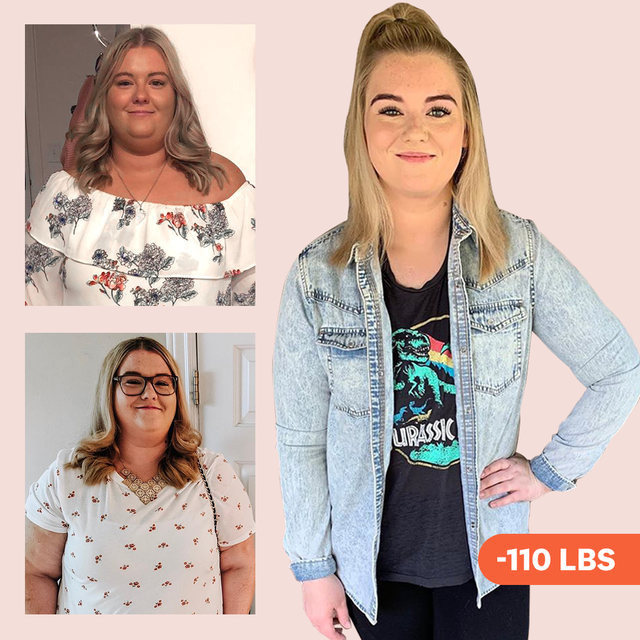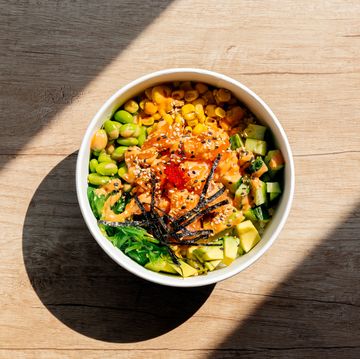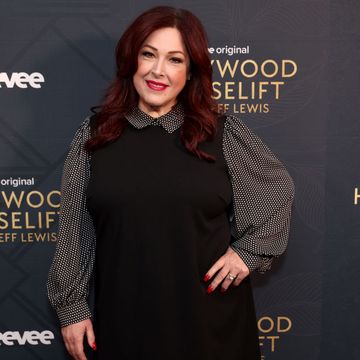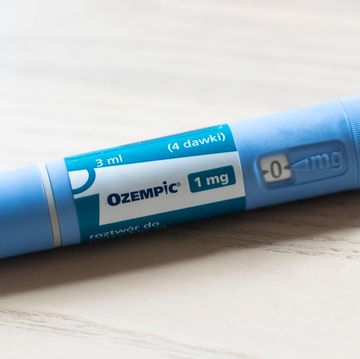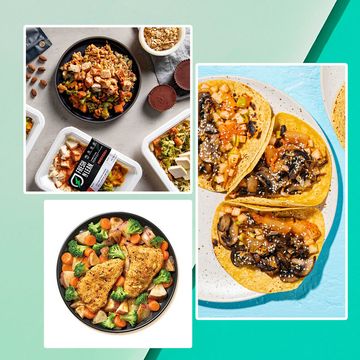I first noticed I was heavier than other girls my age at the beginning of high school. I’d gained about 25 pounds the summer before and walked in on the first day at around 175 pounds. Despite having never gained this much weight in such a short amount of time, I didn’t feel like I stood out because of my size.
Things really took a turn a few months later, though. I was 16 and experiencing terrible stomach pains. A medical examination revealed I had polycystic ovary syndrome (PCOS), a hormonal imbalance that affects the ovaries.
In my case, the pain was caused by a ruptured cyst. As a result, in order to regulate my symptoms and menstrual cycle, I was required to have a birth control shot administered to me every three months for the foreseeable future. I soon realized, however, that I was way hungrier than ever before since I started getting the shot.
During my first three years on the birth control, I went from weighing 175 pounds to weighing 250.
I couldn’t stop comparing my body to those of other girls and I wanted to make a change. So, I tried diet programs including Jenny Craig and Nutrisystem, or I’d eat in a dramatic calorie deficit restricting myself to 500 calories per day while hitting the gym with my dad about three times per week. But I was inconsistent and practicing methods that weren't sustainable for me. No matter what I tried, I never saw results, so I’d give up before trying again a few months later—and then giving up again.
Frustrated, I thought: What’s the point of trying to be healthy if my weight wasn’t budging anyway? I ended up filling my days with fast food. In college, for example, I spent time in between classes, my job, and my internship at the drive-thru to pick up a quick meal. My routine soon became eating around 3,000 calories of greasy food and drinking two or three sodas per day. And by the time I was in law school, weighing 285 pounds, I’d completely given up on trying to lose weight. I was busy, plus, nothing I’d done before worked anyway.
After I graduated at 25, I went to my doctor to discuss weight-loss plans.
He mentioned surgery, which was something I’d never considered before. I initially wrote the suggestion off because it seemed like a dramatic option. I could just cut back on soda and try to live a healthier lifestyle instead of paying a large sum to go under the knife.
So, I gave a lifestyle change one more shot. I stopped getting the birth control shot, since I believed it to be responsible for my weight gain. I committed to eating healthier foods and exercising. I was happy to see I lost some weight, but then my cysts came back, and I had to get back on the birth control. I tried other forms of birth control to see if they might affect my hunger levels differently, but I soon realized that the shot was my best option. But my weight back up 280 pounds, so I decided that surgery—vertical sleeve gastrectomy—might make sense for me.
Preparations for my surgery included six months of supervised classes about nutrition and exercise.
These courses ensured I’d maintain a healthy lifestyle after getting a surgical head start. I got surgery in September 2018 and had 80 percent of my stomach removed, meaning I’d feel full much sooner.
During my first six months post-op, I lost 80 pounds. Since I was still adjusting to the new size of my stomach, I was restricted to eating about six ounces of food per day at first. Month by month, I was able to add more and more food to my diet.
A lot of people who get this surgery go back to eating junk foods and gaining back the weight they’d been losing. But I was determined to put in the work required to finally see a change in my body. I stop eating when I’m full and I eat treats in moderation. I eat around 1,000 calories per day (which is healthy for the size of my stomach), do intermittent fasting, and restrict my carb intake.
A day of meals usually look like this for me:
- Breakfast (at noon): Yogurt and fruit, or a protein shake
- Lunch: Chicken or ground turkey with cheese and cauliflower or broccoli
- Dinner: Chicken or ground turkey with a fruit or with spaghetti
Even if it’s not an intense workout, I make sure to exercise every day, too: I do Orangetheory, a high-intensity training class that consists of cardio workouts and strength training, four times a week. And I also work out at the gym (Planet Fitness) once or twice a week. Plus, I take a long walk with my dog every day.
Though it might seem like it to some people, weight-loss surgery is *not* the easy way out.
I no longer feel like my life revolves around food. For me, seeing how surgery helped change my body gave me the motivation I needed to be consistently healthy—instead of falling into fad diets and then giving them up.
I want people to understand, especially my followers on Instagram, that surgery doesn’t make a weight-loss journey any less valid and maintaining the lifestyle change requires tons of focus, hard work, and sacrifice.
